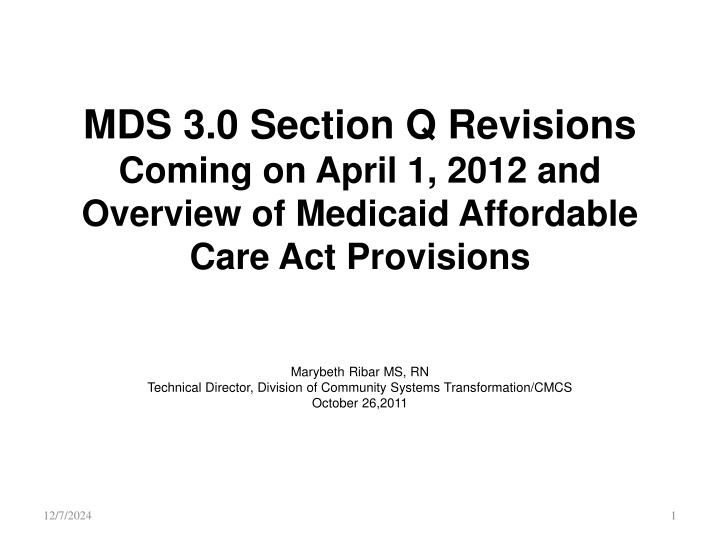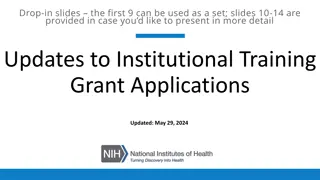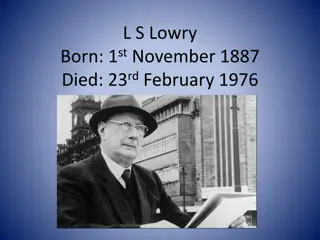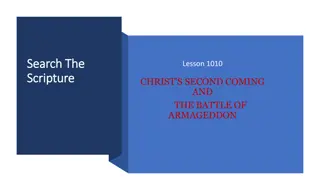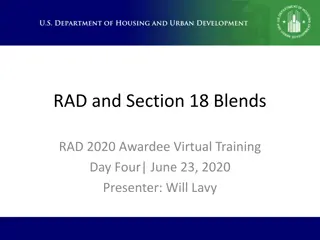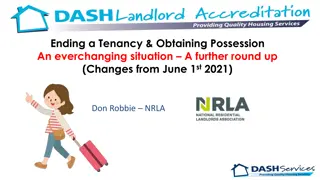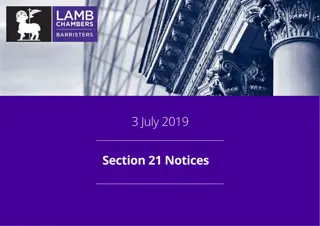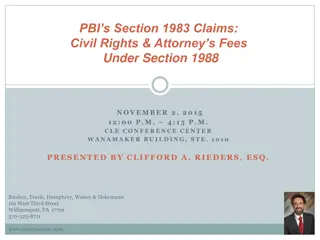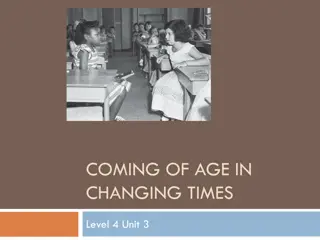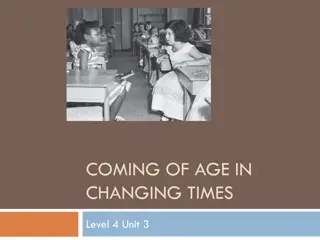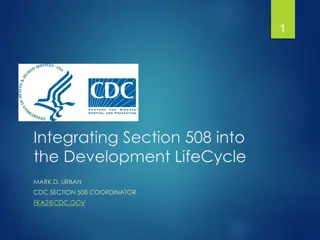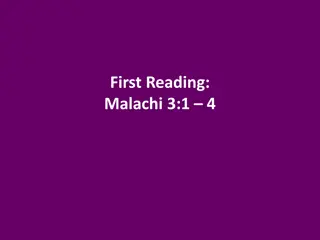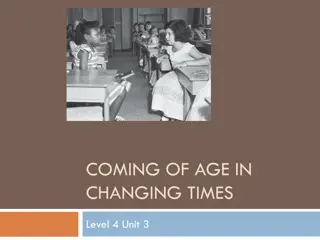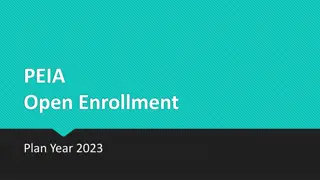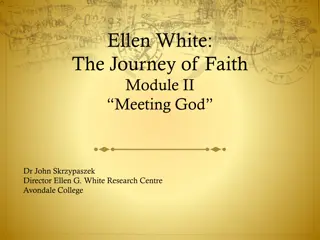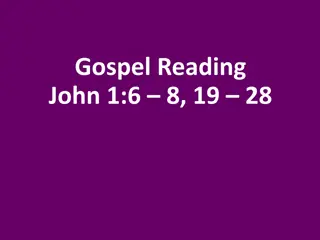Overview of MDS 3.0 Section Q Revisions and Impact on Medicaid Programs
The revisions of the Minimum Data Set (MDS) 3.0 Section Q, focusing on the changes made, reasons behind them, and the expected impacts on Medicaid programs. The dialogue around the need for change, feedback received, and adjustments implemented to better accommodate residents with cognitive impairments are discussed, emphasizing a more person-centered approach. The release date for the revisions is scheduled for April 1, 2012.
Download Presentation

Please find below an Image/Link to download the presentation.
The content on the website is provided AS IS for your information and personal use only. It may not be sold, licensed, or shared on other websites without obtaining consent from the author.If you encounter any issues during the download, it is possible that the publisher has removed the file from their server.
You are allowed to download the files provided on this website for personal or commercial use, subject to the condition that they are used lawfully. All files are the property of their respective owners.
The content on the website is provided AS IS for your information and personal use only. It may not be sold, licensed, or shared on other websites without obtaining consent from the author.
E N D
Presentation Transcript
MDS 3.0 Section Q Revisions Coming on April 1, 2012 and Overview of Medicaid Affordable Care Act Provisions Marybeth Ribar MS, RN Technical Director, Division of Community Systems Transformation/CMCS October 26,2011 12/7/2024 1
MDS: Overview Minimum Data Set (MDS) 3.0 Why Changes are needed Results of Process & Pilot Test Side-by-side Comparison - Current vs. New Items Description of Changes Expected Impacts 12/7/2024 2
Minimum Data Set 3.0 Nursing Facility Resident Assess Instrument Used for all nursing facility residents Primarily used for rate setting & quality assurance Version 3.0 implemented on October 1, 2011 CMS used the opportunity to improve the functionality of Section Q Participation in Assessment and Goal Setting More person-centered -- interview resident/family Action Steps Connection to Local Contact Agency 12/7/2024 3
Need for Change Identified CMS conducted an open dialog as part of the Section Q implementation process Open Forum teleconferences Monthly State Medicaid Agency teleconferences Discussion sessions at conferences Posting Questions & Answers on CMS website Posting Pilot Test Results Posting Local Contact Agencies & State coordinator Points of Contact Ongoing input from Improving Transitions Work Group (States and other Stakeholders) 12/7/2024 4
Results of the Dialog Many program operation issues were resolved Suggestions for improving the functioning of Section Q were made Skip patterns may preclude resident choice Feasibility of discharge question may exclude potential candidates for transitioning Need to better accommodate residents with cognitive impairments, dementia, mental illness Some residents need to explore more options Some residents/families were upset by being asked about returning to the community 12/7/2024 5
Changes -- Feasibility of discharge item was dropped Individuals can opt-out of being asked if they want to speak to someone about returning to the community Some clarifying language changes were made 12/7/2024 6
Intent of Changes Adopts a more person-centered approach Places resident/family at center of decision- making Gives individual residents a voice and a choice while being sensitive to those who may be upset by the assessment process Is more targeted about who gets queried 12/7/2024 7
Results of the Process Suggested changes were incorporated into new draft Section Q and discussed with Improving Transitions Work Group Proposed Language Changes were Pilot Tested in six States (9 facilities) in February 2011 Results are being incorporated in MDS revisions to be implemented in April 2012 12/7/2024 8
Side-by-Side Comparisons -- Current Version Q0100A. Resident participated in assessment 0. No 1. Yes April 2012 Version Same Q0100B. Family or significant other participated in assessment 0. No 1. Yes 2. No family or significant other Same Same In User s Manual: Resident has no family or significant other Q0100C. Guardian or legally authorized representative participated in assessment 0. No 1. Yes 2. No guardian or legally authorized representative Same In User s Manual: Resident has no guardian or legally authorized representative 12/7/2024 9
Changes to Section Q, contd Current Version (on admission) April 2012 Version Q0300. Resident s Overall Expectation A. Select one for resident s overall goal established during assessment process 1. Expects to be discharged to the community 2. Expects to remain in this facility 3. Expects to be discharged to another facility/institution 9. Unknown or uncertain Same Q0300B. Indicate information source for Q0300A 1. Resident 2. If not resident, then family or significant other 3. If not resident, family or significant other, then guardian or legally authorized representative 9. None of the above Same Same Same 9. Unknown or uncertain 12/7/2024 10
Changes to Section Q, contd Q0400 Discharge Plan Current Version April 2012 Version A. Is there an active discharge plan in place for the resident to return to the community? 0. No 1. Yes -> Skip to Q0600, Referral B. What determination was made by the resident and the care planning team that discharge to community is feasible? 0. Determination not made 1. Discharge to community is feasible Skip to Q0600 2. Discharge to community is not feasible Skip to next active section 12/7/2024 A. Is active discharge planning already occurring for the resident to return to the community? Same Same Item eliminated 11
Changes to Section Q, contd Q0490. Resident s Preference to Avoid Being Asked Question Q0500B (complete only when A0310 = 02, 06, 99) Current Version April 2012 Version A. Is there documentation in the resident s clinical record stating only to ask this question on comprehensive assessments? 0. No 1. Yes, Unless is comprehensive assessment, ( in User s Manual) -> Skip to Q0600, Referral 8. Information not available Does not exist 12/7/2024 12
Changes to Section Q, contd Q0500. Return to Community Current Version April 2012 Version B. Ask the resident, (or family or significant other if resident is unable to respond): Do you want to talk to someone about the possibility of returning to the community? 0. No 1. Yes 2. Unknown or uncertain B. Ask the resident, (or family or significant other if resident is unable to understand or respond): Do you want to talk to someone about the possibility of returning to the community? Same Same 9. Unknown or uncertain 12/7/2024 13
Changes to Section Q, contd Q0550. Resident s Preference to Avoid Being Asked Question Q0500B again Current Version April 2012 Version A. Does not exist A. Does the resident, (or family or significant other or guardian, if resident is unable to respond) want to be asked about returning to the community on all assessments? (rather than only on comprehensive assessments) 0. No then document in resident s chart (clinical record) and only ask again on the next comprehensive assessment. 1. Yes 8. Information not available B. Does not exist B. Indicate information source for Q0550A 1. Resident 2. If not resident, then family or significant other 3. If not resident, family or significant other, then guardian or legally authorized representative 8. No information source available 12/7/2024 14
Changes to Section Q, contd Q0600. Referral Current Version Has a referral been made to the Local Contact Agency? April 2012 Version Has a referral been made to the Local Contact Agency? (Document reasons in resident s chart) 0. No - referral not needed 0. No - determination has been made by the resident and the care planning team that contact not required. 1. No referral not made 1. No referral is or may be needed (For more information See Section Q Care Area Assessment- #20) 2. Yes referral made 2. Yes 12/7/2024 15
Expected Impacts (based on Pilot Test Results; big caveats) By eliminating the Determination of Feasibility of Discharge item, many more residents were asked the question, Do you want to talk with someone about the possibility of leaving this facility and returning to live and receive services in the community? And many more said Yes 12/7/2024 16
Expected Impacts By giving residents/families an opt-out provision (for those who cannot or do not want to move out), on subsequent quarterly assessments about talking to someone about returning to the community, they likely will be less upset Should reduce the number of residents for whom the question is not appropriate Works better than the feasibility-of-discharge question in targeting who should be asked the return to community question 12/7/2024 17
Expected Impacts More clarity about referrals But key is communication at the local level For more information: Send questions to: www.MDSforMedicaid@cms.hhs.gov 12/7/2024 18
Medicaid Overview of Medicaid Affordability Care Act Provisions and care transitions 12/7/2024 19
Top 5% in Medicaid Expenditures Age Duals vs. Non-Duals 14% 16% Under 21 21-65 66-85 Over 85 46% Duals Non-Duals 24% 54% 47% Source: CMS Analysis of MSIS data FY2008 12/7/2024 20
CMS Medicaid Programs States community long term care (LTC) programs provide home and community based services for Medicaid eligible individuals including case management and an array of supports Most 1915c waiver programs offer transition services 12/7/2024 21
Medicaid ACA Section 2403: Money Follows the Person Now extends through 2019-transitions individuals from institutions to community based care and adds resources to balance LTC Enhanced Federal match for community services for first year following transition from facility 43 States and the District of Columbia now participating in the demonstration 12/7/2024 22
Medicaid ACA Section 2703: Health Homes for Individuals with Chronic Conditions States are able to offer health home services for individuals with multiple chronic conditions or serious mental illness effective January 1, 2011 Coordinated, person-centered care Primary, acute, behavioral, long term care, social services = whole person Enhanced FMAP (90%) is available for the health home services (first 8 quarters) 12/7/2024 23
Medicaid ACA Section 2401: Community First Choice Option Adds Section 1915(k) Optional State Plan benefit to offer Attendant Care and related supports in community settings, providing opportunities for self-direction Does not require institutional LOC under 150% FPL Includes 6% enhanced FMAP 12/7/2024 24
Medicaid ACA Section 10202: Balancing Incentive Payments Program Participating States must commit to three structural changes: Implement a No Wrong Door/Single Entry Point system Use a Core Standardized Assessment Instrument Implement Conflict Free Case Management standards 12/7/2024 25
Resources CMS: Community Services and Long-Term Supports http://www.cms.gov/CommunityServices/01_Ove rview.asp#TopOfPage State Medicaid Director Letters http://www.cms.gov/SMDL/SMD/list.asp#TopOfPage MFP Technical Assistance Website http://mfp-tac.com/ For more information: 12/7/2024 26
